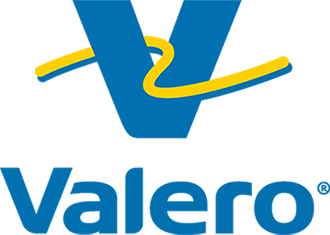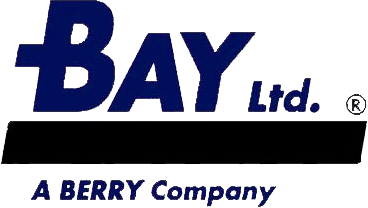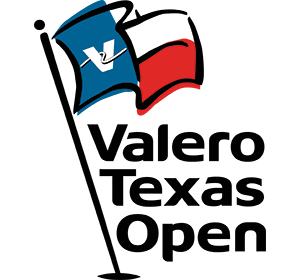Media Center Interviews
April 3, 2024
Pre-Tournament Interview with Charley Hoffman
JOHN BUSH: We would like to welcome Charley Hoffman into the interview room. It is a room that Charley is used to coming to.
Charley, what a career you've had just at this tournament, a win, three runner-ups, seven top-10s, 13 top-25s, the list goes on and on. Just comment a little bit about what this tournament means to you and why you found so much success here.
CHARLEY HOFFMAN: I would say Texas in general I've played fairly well throughout my career. Obviously I think this is the start of my 19th year -- not start, in the middle of my 19th year on Tour. Obviously we were at a different golf course, La Cantera prior, had some success there and then moved over here.
I remember back in the day, like take a tour of TPC San Antonio, come over here and see if you like the golf course. I never did do that tour, but obviously it's a golf course I fell in love with. It was even more demanding when we first got here, the golf course was very tight, very penal if you didn't hit the fairways. The Tour and the resort have done a great job I would say of softening some things up and making it a little more friendly and inviting for the resort players and the PGA TOUR players.
It's a golf course you've got to drive your golf ball well. I've traditionally played well in the wind, which is the reason why I think I've played well in Texas. It's a ball-striker's golf course, it's a course that you need to give yourself opportunities on the green to be in the right sections. It's something that just fits my eye. I think the demand of it just sort of just fits my game.
JOHN BUSH: And it's a milestone week for you as well, great place to be for your 500th PGA TOUR start, if we can get some comments on that. Is that mind boggling to you?
CHARLEY HOFFMAN: It really is. I really had no idea when my 500th start was until literally at the WM Phoenix Open after -- I think at the presser in L.A. someone said something, in three starts it's going to be your 500th. I'm like, where am I gonna do that.
I honestly strategically picked this week to have it done just because it's so near and dear to my heart and a place where the family I knew during spring break could come and celebrate that sort of stuff with me. It's something we hand picked after I found out where my 500th start was going to be.
It's quite mind blowing. I played the pro-am ironically with Joe Ogilvie today. We just started talking, I think the unicorn of 500 starts is going to be even harder to attain in the future for PGA TOUR players. Guys are traditionally playing less, there's rumblings of a shorter season and so on and so forth. So to get to 500 starts, it's going to be hard for the younger guys.
It's something that I probably never thought I'd get to and it's quite an accomplishment. I want more, I don't see myself going anywhere as long as I'm healthy. I obviously want to hopefully get to 600. I remember playing just a couple years back at Zurich with Bill and Jay and he made his, what, 600th cut or something like that? It was some -- 600 cuts out here, that's Cal Ripken numbers. I don't think those numbers are ever going to be even touched anymore.
But 500 is something that obviously I'll look back on my career and be proud of getting that number.
JOHN BUSH: Congratulations on that.
CHARLEY HOFFMAN: Thank you.
Q. Going to put you on the spot and ask if you think back to the old Charley Hoffman with the long surfer hair, the Charley Hoffman of today, 500 starts later, what would you say are the biggest differences in your character, your personality? Not so much your game because, that's pretty evidence, but the Charley Hoffman of 500 starts ago versus today?
CHARLEY HOFFMAN: Well, I think I'll use this analogy, I've done this a few times: The Charley Hoffman with the long hair and trying to become a PGA TOUR player and star, I think I was just dumb enough to think I could do it. I thought I could compete with the best in the world. I played my first event when I was 16 in San Diego and I thought I could play with the guys.
Then now, and I'll use at the WM Phoenix Open, I think I'm just dumb enough to think I can compete against these 20-something-year-olds and I still think I can beat them. So I think there's a little bit of stupidity inside there which is consistent through all this.
I just love to compete, I love to play, I love to feed off people. When I was younger I used to try to get on the first tee and learn from the older guys. Now I like playing -- if I go play a practice round, I don't mind playing with the younger guys, sort of feed off their energy and what they do and their charisma and how they hit it. I never have lost that I guess inhibition to learn and get better.
I'm still working. My instructor's out this week, trying to get better, always trying to improve on what I do. I think that's what's consistent.
I guess I'm talking a lot about more consistencies than I have any differences really. It's just the constant search to get better and never being complacent out here. I think that's what I think for my longevity really helped.
Q. You hit the 500 mark. Is that an excuse to start dialing it back a little bit or does that kind of invigorate you to kind of work towards 1,000?
CHARLEY HOFFMAN: I was sort of banged up the last couple years, been on the board, taking a lot up of my time. It's been nice this year not to have to deal with the board and my body's been great.
So I have to listen to my body a little bit more often now than I used to. Used to be able to wake up and go and hit balls and play 18 holes and have no problem. I can't do that anymore. I have to sort of strategically plan my travel and my prep on how my body feels. If my body feels great. Obviously the warmer it gets, my body feels better. So the colder weeks are a little bit harder for me, but the warmer weeks are way better.
I think I'm -- I'm going to keep going as long as I can still compete. I don't like missing cuts, I can promise you that. When I don't think I can compete out here anymore, you'll see me hopefully go to the Champions Tour and play good out there against those guys a little closer to my age.
I just love, I really do love competing no matter what stage it is on.
Q. You mentioned your body feeling good. I saw some videos in the wake of Phoenix doing some work at TPI, some pretty unique stuff. Just wondering what are some things you do out there and how do they translate to the golf course?
CHARLEY HOFFMAN: Yeah, TPI I would say was my little secret for a long time. I think Greg Rose and Dave Phillips developed an amazing place there in San Diego at the Titleist test center, the TPI, what they've done. I wouldn't be where I am today without them and I think I've gone down a journey with them, trust them. And they're very body focused on how your body reacts, how your body feels, what your body can be, should be able to do in the golf swing.
I have data on my body to sort of geek out a little bit from 2000, when I was just getting on the Korn Ferry Tour and Greg Rose had just started in San Diego, until 2024 now. When I was hurt, we dug back against some old data to see what my body used to do and making sure I can still do it and sort of timing out when I could give it a full schedule again. There was times last year or two years ago I felt I could play and I'd step up and the data wasn't even close.
We're still getting closer. There's a lot of things I would like to get back, a little bit more speed and a little bit more training on the heavier weight side. But functional movement, make sure my body stays healthy and be able to swing the golf club is key. They're my secret sauce that I think people are sort of starting to realize that the biomechanics of the golf swing, each in tennis, baseball, soccer, everyone's sort of diving down that way a little bit. They are definitely one of the main reasons I'm here and my longevity on the PGA TOUR for 500 starts. I use a TPI trainer, TPI certified instructors. Everything TPI I fully believe in. The data I have from them is invaluable.
Q. How long does it take to build that trust? You said that you just kind of gave in and just gave them the keys kind of. Did that take some time or did you just have faith from the start?
CHARLEY HOFFMAN: I would say initially we collected -- we were collecting a lot more data and there was some instruction. When you start teaching via that and go, these are the facts of what you used to do and this is the facts of what you've done, or this is what we need to try to get to, let's try to do this or that, you're not guessing, you're not guessing anymore. We're not teaching via guessing, we are teaching via facts. This is how you used to swing, this is how you want to swing, this is what your body can do and can't do. You may not be able to do what you used to do so you need to improve in this area, so on and so forth. We focus on the body to make sure there is no inability to do things. We do assessments on I would say a quarterly basis to make sure my body's transitioning in the right direction. As I said, I want to maintain my body. I'm not trying to be a body builder or anything, I just don't wants to lose, I don't want to lose any speed or any flexibility, so on and so forth.
Q. And you mentioned kind of strategically picking this to be 500. Can you just talk a little bit about some of the relationships that you build and kind of finding special places maybe in the schedule that you like to go throughout your career?
CHARLEY HOFFMAN: Yeah, obviously success by playing well becomes a favorite place. I think the breeding of -- I'm happy to stay right here on the golf course. I'm still raising a family. Family came here, they were happy because they have the water park, it was easy to meet for dinner, didn't have to worry about who had the car, how I was getting dropped off at the golf course. You just walk out of the hotel. I think that breeds success because I was happy through this. I think the whole setup here is great for myself, I really enjoy it. That's how I picked this place. And obviously the relationships through tournament directors, through people, volunteers that have been here that say they saw me win X amount of years ago.
It's crazy, I'm going to draw a blank on his name right now, there used to be a guy here, I'm pretty sure he's passed away that used to -- here and at La Canterra that used to hand out his own pretzels that he used to make on the tees and then he transitioned over here, like the par 5 13, 14, the par 5, he was back there for a bunch of years. I don't think he's no longer around, but those are the memories, these volunteers take pride in the holes that they use and you gain relationships. You may not ever say hi to them, but you make a difference by saying thank you and hi to these guys that take their day off of usually from working or doing whatever they do to come out here and support the PGA TOUR. So definitely a lot of relationships.
Q. Kind of an extension of that answer you just gave, JB rolled off a very impressive history here on the course. Is there any sense of expectation that you're supposed to play well here that might add any kind of pressure or is that fishing in a pond without a fish?
CHARLEY HOFFMAN: I think there's always -- I think I always have expectations no matter where I go tee it up to play well.
No, I just think -- I think when you get on the golf course you feel comfortable, so the expectation is not -- obviously I'd bummed if I didn't, but I just think the comfort once you step on those tees and get in the flow of the tournament that the expectations sort of go away.
JOHN BUSH: One more, Charley, just specifically about this season. Talk a little bit about this season up to this point and specifically WM. At the end of that week, was it more disappointing of not getting it done or was being in the hunt there and the satisfaction of another event that means so much to you --
CHARLEY HOFFMAN: Yeah, correct. Honestly, the WM event has a lot of parallels to this event if you think about it. I stay at the resort at the Princess, I can get to the golf course easy, my family likes to come, we have friends around. There's a correlation I think there, a lot to that event obviously. Feel very comfortable with the WMs and the executives. There's a lot of parallels that week of playing well. Easiness obviously makes my job easier with everybody around.
But the season, I honestly throw one week out, it's been sort of somewhat of a disappointment as of late. My putter has gone somewhat cold after having a great week at WM so I need to get that back.
I feel great. I would say the putts aren't going in that did go in earlier in the year. The ball-striking, I've been trying to make a few -- believe it or not, after Waste Management I did a deep dive, I wanted to make had a few changes. There's a double-edged sword of trying to get better, you've got to take one step back to take three steps forward. I'm still trying to get better. There's some things we're working on to get better.
But the key for me this week is to make the putts. If I putt good out here, which I've done traditionally, I'll have a chance coming down the stretch because I can -- my ball-striking usually carries me through this neck of the woods.
The season as of late's been a little slower. I haven't played bad any weeks, I just haven't been able to make the cuts that I had to. Miss them by a shot or two, which I hate, I'd really rather miss by seven shots than one or two because I know I'm playing good enough to compete each and every week. Especially the PGA TOUR is so, each and every week is so tight. If you just make the cut you've got a chance to win out here. I need to be there on the weekend to have a chance to win and hopefully -- obviously you've got to crawl before you can walk, I've got to get through Thursday and Friday so I have a chance out here on the weekend at Valero Texas Open. Obviously the confidence I gained by being in contention at WM and holding the pedal down and having a chance on Sunday, obviously I'd feed off that once I get back in contention.
JOHN BUSH: Good stuff and congratulations once again.
CHARLEY HOFFMAN: Thank you.
















